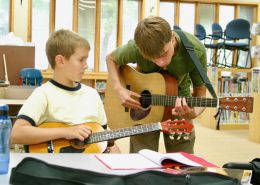
What makes a great summer camp?
Many of us put our kids not just in one summer camp, but multiple 1/2 day or full day camps in our local area. My family’s three children are signed up for a total of 12 summer camps. So, how does a parent know they have chosen right and dedicated their time and money towards a valuable summer camp experience.
At {YEL!} we strongly feel there are three elements that go into making every class or camp we teach a FIVE STAR experience. Those three elements are:
-
Dynamic Instructors
-
Robust Curriculum
-
Service
How can a parent gauge whether these elements are being served? Keep on reading…
Dynamic Instructors
The first element we feel makes a great summer camp is a DYNAMIC INSTRUCTOR. At {YEL!} one of our founding principals was the understanding  that great instructors are paramount to providing a great classroom experience. A great instructor can take 24 straws and two rolls of duct tape and keep 18 excited kiddos engaged for hours. A dud instructor can have a class where the kids build laser beams and blast LEGO® bricks to smithereens, but if the instructor is a dud, the kids won’t enjoy the summer camp.
that great instructors are paramount to providing a great classroom experience. A great instructor can take 24 straws and two rolls of duct tape and keep 18 excited kiddos engaged for hours. A dud instructor can have a class where the kids build laser beams and blast LEGO® bricks to smithereens, but if the instructor is a dud, the kids won’t enjoy the summer camp.
A tale of two camps
A quick story…we signed two of our children up for non-{YEL!} sports camps last summer. One camp had a dynamic instructor who greeted my wife and our two children each day, called them by name and made note of their individual accomplishments. The other camp had two instructors who seemed more interested in planning their social calendar then they were in making the class a great experience for our kids. Phrases like, “I don’t know why we are both here anyway. They only need one instructor.” and “I hope they cancel tomorrow because of rain.” escaped their lips. Now, that being said, our children enjoyed and learned at both camps, but my wife will not sign our children up for the second camp again.
So what did we learn? How can a parent tell if they have a dynamic instructor?
- Warm Welcome
- Did the instructor(s) greet the parent and students the first day of class?
- Did they welcome your children, assure them they are in the right place, and escort them to where they need to be next?
- Safety
- Did your children feel safe physically and emotionally? Parents can tell within 30 seconds of watching sports camps or classroom camps whether the instructor is promoting a physically and emotionally safe environment.
- Proper physical safety considerations include:
- Children are escorted to and from different locations. The instructor is always escorting the students from the front . As opposed to the “jail break” approach of excusing all the kiddos at the same time and trusting they will get to where they need to be.
- Sport teachers have ice packs and bee sting kits for outdoor classes.
- Before and after snack time, the children wash their hands to minimize allergy issues and sickness.
- Youth games are designed with safety in mind. For instance, beginning soccer players stay an arm length away from the opponent; no puppy-guarding; no stealing for beginners.
- Proper emotional safety
- The instructor(s) promote encouraging comments between teammates and even competitors. At {YEL!} we are fond of saying, “You may be playing against each other today, but you could be on the same team tomorrow or in middle school or high school. So encourage each other.”
- Phrases like: “nice try”, “good effort”, “you can do this” should be on the tips of the lips of youth competitors. Phrases to stay away from include: “what did you do that for”, “I would have scored if it was me”, “what were you thinking”. When those negative phrases come out, a quality coach will put the kibosh on it immediately and coach the students to use encouraging phrases.
- Inclusion
- Are all kids participating all the time? Yes, in some sports classes, the kids will need to take a break and rotate in and out of the game, but all drills and skill-building games should be designed for all students. Nothing gets my gander up more than a youth coach who is focused
 entirely on one or two students and doesn’t keep in mind the students on the bench and keeping everyone active.
entirely on one or two students and doesn’t keep in mind the students on the bench and keeping everyone active.
- Are all kids participating all the time? Yes, in some sports classes, the kids will need to take a break and rotate in and out of the game, but all drills and skill-building games should be designed for all students. Nothing gets my gander up more than a youth coach who is focused
- Lesson preparation
- Coaches should have enough of a lesson plan for the entire duration of camp plus 20%. So, if the camp is Monday through Friday, 9am to noon (15 hours, that is) then the coach/instructor should have enough lessons for 18 hours of instruction. This helps keep accelerated students engaged throughout the duration of the camp.
- NOTE: A number of students won’t complete the entire 15 hours worth of material, and that is okay. Different students have different levels of experience. A first grade beginner can’t be expected to complete the same projects and curriculum as an advanced 4th grader.
- Fun
- The kids should want to come back for more the next day. They should feel like they learned something new.
- A High-Five-Goodbye can go a long ways to keeping the kids enthusiastic about coming back again.
- A coach who makes note of each student’s individual accomplishments and progress is important.
Robust Curriculum
The second element that makes for a great summer camp is robust, comprehensive curriculum. In the illustration above, a great summer camp instructor could use duct tape and straws to run a class. Well, what we at {YEL!} are looking for is to pair that great instructor with robust curriculum. To those ends, every lesson we have takes the basic approach of Teach It!…Practice It!…Play It! CLICK HERE to visit that page to learn a bit more about that method.
Every course we have has daily lessons, core concepts that are discussed with each project or skill, and a progressive approach so students have learned more about the subject of that camp by the end of the week.
Light bulb moments
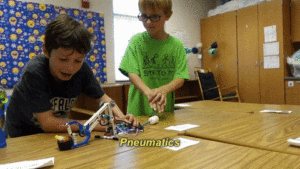 What our coaches/instructors love the most are those light-bulb moments. Moments when a student takes what the instructor has taught them and incorporates it into their game or project. Whether it is a chess student using the Rook Ladder to create a checkmate or a Project Runway student using her machine to finely finish a hem, our instructors’ hearts leap for joy when a student “gets it”.
What our coaches/instructors love the most are those light-bulb moments. Moments when a student takes what the instructor has taught them and incorporates it into their game or project. Whether it is a chess student using the Rook Ladder to create a checkmate or a Project Runway student using her machine to finely finish a hem, our instructors’ hearts leap for joy when a student “gets it”.
FIVE STAR Service
Our goal is to provide every student with a FIVE STAR enrichment experience. For {YEL!} instructors and staff, that means everything we’ve previously discussed as well as follow up and follow through. We say what we do and do what we say. If we haven’t delivered the FIVE STAR experience you are looking for, please contact us. Our {YEL!} Guarantee is that we will make it right! How do you know you are getting FIVE STAR Service?
- Is your instructor doing the things we’ve mentioned above? Warm-welcome, High-Five-Goodbye, including all students in a safe and encouraging environment with prepared lessons.
- Is your child having fun in the camp?
- If you have a concern, is the instructor responding to it?
- Is the {YEL!} office responding to your emails or phone calls?
Measure it
{YEL!} instructors are asked to conduct a Fist-to-Five survey occasionally with their class. A fist (zero) meaning the student is not enjoying the class. A five means they can’t wait to come back. If a student gives a teacher less than a five, our instructors may ask the student-customer what they would like to see changed in order to get a five. You would be surprised at how well this simple survey helps our instructors know what their student-customers are looking for from a camp.
We also have our 2 Question, 10 Second Survey that goes out to all parents in participating districts. Look for an email from {YEL!} or a {YEL!} partner (community education or parks and recreation, for instance) with survey details.
We’ve received thousands of responses since we started the 2 Question, 10 Second Survey in December of 2016. CLICK HERE to view those survey results.
Summation
So, what makes a great summer camp? We feel it is: Dynamic Instructors; Robust Curriculum; and FIVE STAR Service. We encourage you to take this list with you on Monday morning for your next camp. We hope your children have an active and engaging summer in whatever summer camps they have chosen.



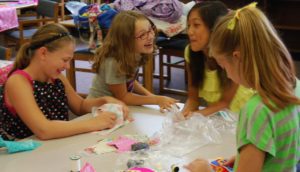 entirely on one or two students and doesn’t keep in mind the students on the bench and keeping everyone active.
entirely on one or two students and doesn’t keep in mind the students on the bench and keeping everyone active.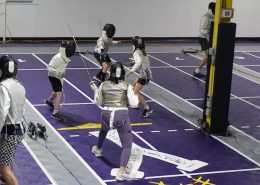 2023 YEL
2023 YEL
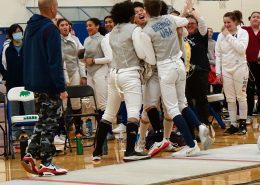

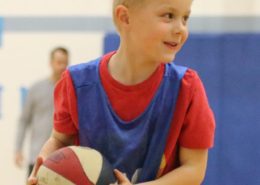 2019
2019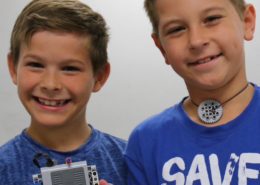
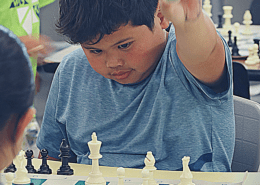 2019
2019

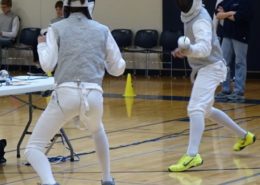 ©2019 YEL
©2019 YEL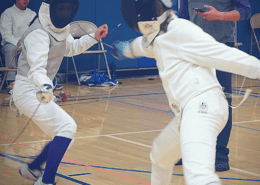
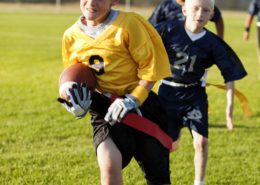 ©2019 YEL
©2019 YEL